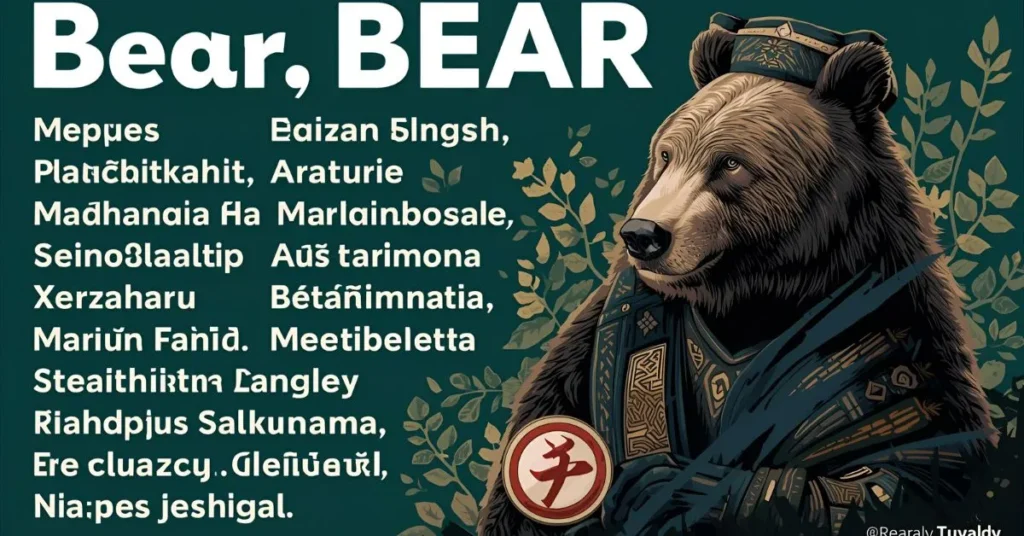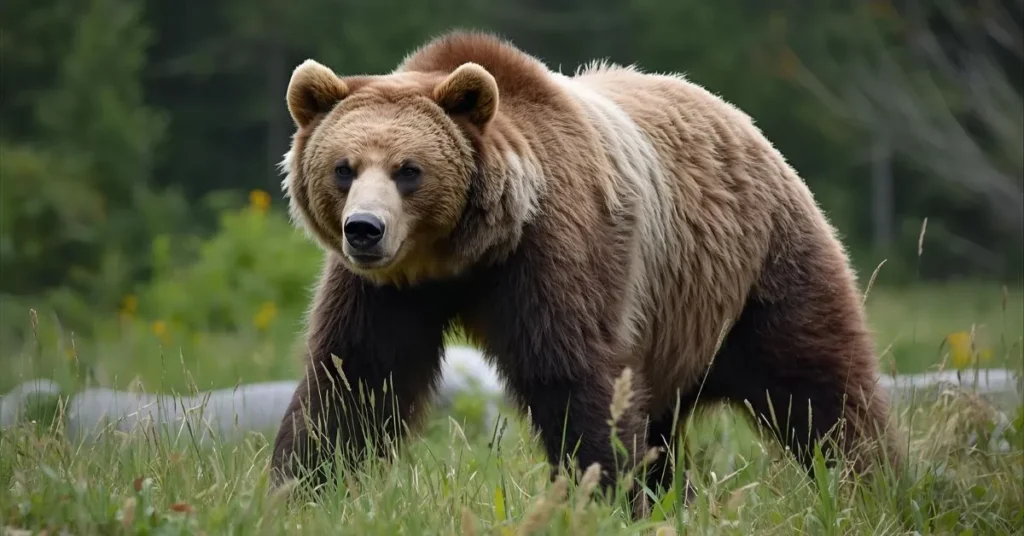When people search for bear in different languages list, their goal is usually simple yet meaningful—they want to know how to say the word bear across the world’s major languages.
This could be for travel, learning, cultural curiosity, writing, or even tattoo ideas. Some are nature lovers wanting to describe this majestic animal in global tongues, while others may be language learners looking to expand their vocabulary.
In this article, your problem will be solved because we not only provide a complete list of translations of the word “bear” but also explain how you can use them in daily conversations, stories, or learning exercises. By the end, you’ll know how to say bear in multiple languages and understand its cultural significance.
Meaning of the Word “Bear”

The word bear refers to a large, powerful mammal found across North America, Europe, and Asia, often symbolizing strength, courage, and wilderness. In many cultures, bears hold spiritual and mythical importance, representing bravery, protection, or even wisdom.
Knowing its translation in different languages helps you connect with people worldwide when discussing animals, wildlife conservation, folklore, or even zodiac signs (like the Bear constellation).
Bear in Different Languages List

Here’s how you say bear in different languages:
- Spanish: Oso
- French: Ours
- German: Bär
- Italian: Orso
- Portuguese: Urso
- Russian: Медведь (Medved’)
- Polish: Niedźwiedź
- Greek: Αρκούδα (Arkóuda)
- Turkish: Ayı
- Arabic: دب (Dubb)
- Hebrew: דוב (Dov)
- Hindi: भालू (Bhaloo)
- Bengali: ভালুক (Bhaluk)
- Chinese (Mandarin): 熊 (Xióng)
- Japanese: 熊 (Kuma)
- Korean: 곰 (Gom)
- Thai: หมี (Mii)
- Vietnamese: Gấu
- Swahili: Dubu
- Zulu: Ibhere
- Finnish: Karhu
- Swedish: Björn
- Norwegian: Bjørn
- Danish: Bjørn
- Icelandic: Björn
- Latin: Ursus
How to Use for bear

- Conversation Practice: Use “bear” translations when speaking with native speakers to impress them with your knowledge.
- Example: El oso vive en el bosque (Spanish: The bear lives in the forest).
- Travel: If you’re visiting a zoo or national park in another country, knowing the local word for bear makes your trip smoother.
- Cultural Connection: Many countries have folklore about bears (like Russia’s “Medved” or Japan’s “Kuma”), so knowing the right term helps you understand traditions better.
- Learning Languages: Adding animal names is a fun way to expand vocabulary when studying a new language.
Conclusion
The word bear carries deep symbolism and meaning in cultures worldwide. By learning how to say bear in different languages, you’re not only improving your vocabulary but also building a stronger connection with people, stories, and traditions across the globe.
So whether you’re a traveler, student, or simply curious, this bear in different languages list gives you the words you need to talk about one of nature’s most powerful animals anywhere in the world.



